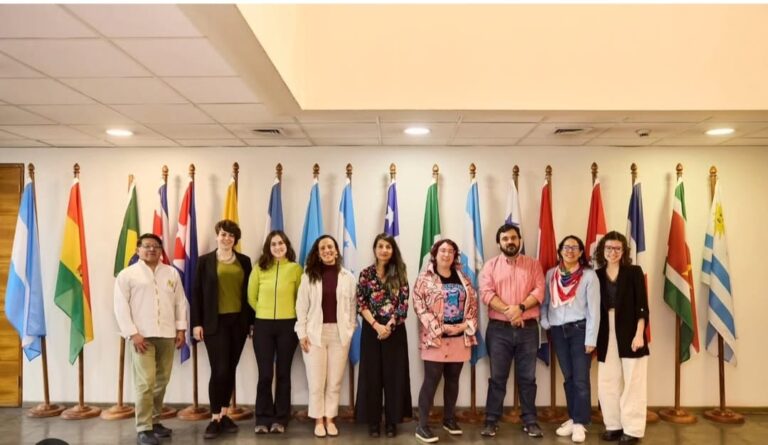In a context of growing authoritarianism and restrictions on civic space, Latin American organizations gathered in Santiago to outline strategies for monitoring and implementing the recommendations of the UN Universal Periodic Review.
On October 16 and 17, 2025, Santiago, Chile, hosted the meeting of the EPU América del Sur Collective, a regional coalition of civil society organizations dedicated to monitoring the implementation of the recommendations of the UN Universal Periodic Review (UPR).
The event sought to exchange experiences, articulate strategies, and reaffirm the role of organized civil society as a key agent in monitoring international recommendations, in a regional context marked by setbacks in human rights, growing authoritarianism, and attacks on democratic institutions.
Overview and tensions
Latin America is experiencing a period of political and social tensions that directly challenge the protection of human rights. The democratic crisis, marked by the weakening of institutions and widespread distrust in representative structures, threatens historic achievements.
Civic space, once considered relatively free, is also rapidly shrinking. Political repression, arbitrary arrests, and increased violations against human rights defenders, journalists, and activists show how social participation has become the target of systematic attacks. At the same time, populist leaders and authoritarian rhetoric undermine trust in institutions and discredit the press, the judiciary, and other pillars of democracy.
The meeting and its promises
It is in this context that the EPU América del Sur Collective has established itself as a space for regional coordination in defense of human rights. During the meeting in Santiago, participating organizations shared best practices, strengthened partnerships with National Human Rights Institutions (NHRIs), and outlined strategies to strengthen SIMOREs/NMIRFs—mechanisms responsible for ensuring the effective implementation of these recommendations.
One of the most relevant outcomes was the decision to expand the initiative to the entire region, with the transition to the EPU Latin America Collective. This expansion reflects a common conviction: it is necessary to increasingly strengthen the role of civil society in monitoring and holding states accountable for their human rights obligations, especially through national collectives.
Challenges to implementation
The path to the effectiveness of these recommendations involves structural challenges that cut across the region:
Political and institutional will: even with international commitments, implementation depends on internal decisions, resource allocation, and state action. In many cases, mechanisms remain underutilized or with little visibility.
Capacity of civil society and national institutions: Human rights organizations and bodies face budgetary, human resource, and autonomy constraints in their monitoring efforts. There is a need for technical and strategic strengthening, as well as funding.
Civic space and plurality: the implementation of recommendations requires an environment where civil society can act freely, negotiate with public authorities, question, and demand accountability. The erosion of this space undermines the very basis of effectiveness.
Interdependence between rights, democracy, and institutions: The advancement of human rights does not happen in isolation. Strong democracy, independent institutions, and active social participation are mutually reinforcing conditions. The deterioration of any one of them affects the whole.
Why it matters
When the UPR recommendations move from paper to concrete policies, there are real gains: violations can be prevented, people who have suffered violence have access to justice, public policies become more inclusive, and institutional transparency is strengthened.
To this end, the next steps require more than commitments; they require regional cooperation, strategic planning, and political will. It is necessary to deepen alliances between civil society, national institutions, and international organizations, create clear monitoring mechanisms, and establish verifiable goals.
The strengthening of the Latin American UPR is a reminder that, even in the face of setbacks, the strength of organized civil society remains the engine of democracy and the main guarantee that human rights do not become empty promises.
